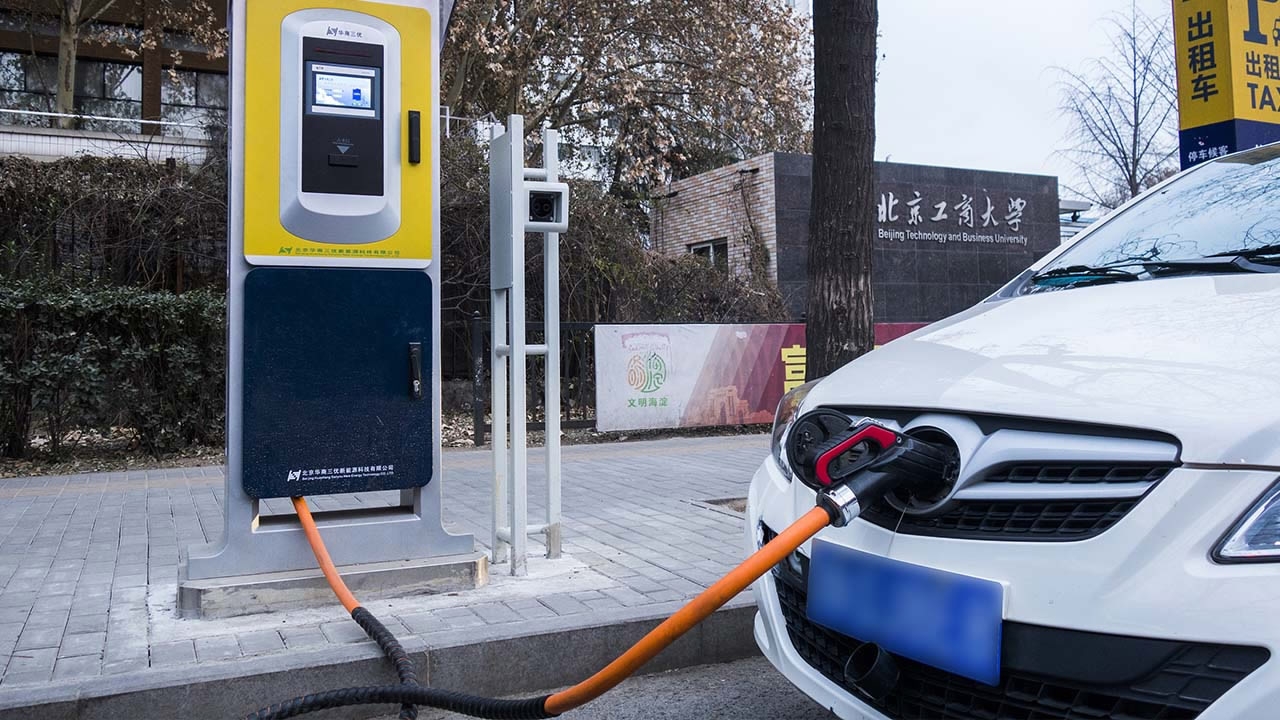
Business
19:37, 21-Jul-2017
China pushes for greener vehicles as market growth slows in H1

China's auto market is getting greener as the central government puts more effort into promoting cleaner forms of energy. The green push has foreign car makers concerned over whether they will be able to meet government demands for additional green energy vehicles.
China's first-half auto sales rose only 3.8% year-on-year, although there was slightly better performance in June. That is a huge slowdown compared to last year's 13.7% growth rate. And while sales of new energy vehicles continue to grow -- up 31% in the first half compared to last year -- overall sales of new energy vehicles accounted for only 1% of the 13 million vehicles sold during the first half. Experts say China's auto industry had been prepared to see a significant drop in auto sales, but there are other factors that are expected to take effect in the second half as well.
China's auto market was pretty steady in the first half of the year, but the months of July and August are expected to have weaker sales, due to the hot weather. In addition, the phasing out of preferential policies continue to slow the market. Those factors could affect performance in the second half. New energy car sales somewhat filled the market gap caused by increased taxes on smaller vehicles, but could not entirely make up for the gap.
New energy vehicles continue to be China's main focus as the country aims to cut pollution and become a leader in clean car technology. The country's Ministry of Industry and Information Technology is requiring car makers to ensure that new energy vehicles make up 8% of their total production by 2018. That number will rise to 10% in 2019 and 12% in 2020. While leading Chinese domestic auto makers have been ramping up new energy car production and are expected to easily achieve the targets, a group of automakers from the US, Japan, Europe and South Korea is protesting. The group wrote a letter last week urging the government to postpone its planned new energy quotas by from one to three years. Experts say the foreign brands are under pressure because they lack new energy car production lines in China.
China only considers plug-in hybrids and electric cars as new energy vehicles, and that excludes a lot of models from foreign brands that are considered elsewhere to be new energy vehicles. Foreign auto makers have been reluctant to roll out new energy models. They are aware of the government's demand for new energy vehicles, but they have not yet seen increased demand from consumers. At the same time, their gasoline models have been really popular in China.

SITEMAP
Copyright © 2018 CGTN. Beijing ICP prepared NO.16065310-3
Copyright © 2018 CGTN. Beijing ICP prepared NO.16065310-3